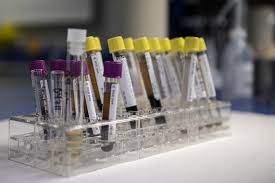For many patients undergoing surgery, even plastic surgery, there can be a requirement for some form of preoperative testing. While the indications for laboratory tests has become more selective and less of a shotgun approach than when I first started in medicine, patients over 50 years of age are recommended to have some basic blood work and an EKG. Younger patients generally only get selective tests based on whether they have a specific medical condition or inherited disease.

But are these tests really necessary if the patient looks good and feels fine? The unequivocal answer is yes. Because every great now and then these preoperative tests reveal a relevant piece of medical information that can be life-saving. The percentages are not high, maybe less than 1%, but that is fairly standard for screening tests of almost any sort.
For plastic surgeons, the most likely medical disease to be ‘discovered’ is breast cancer due to the large number of breast reshaping operations that are performed. Mammograms before elective breast surgery in anyone over age 35 or 40 can reveal suspicious masses or lesions that had not been previously detected. Finding malignant lesions during breast surgery is well known but it is far better to find them before surgery.
Such testing for me has revealed a wide variety of other medical diseases such as ovarian cancer, cardiac rhythm disturbances, blood clotting disorders and reduced kidney function. In each case the patient was completely unaware that they had any problems and further work-up by their own doctors lead to either delayed surgical times or eliminated the proposed procedure altogether. I even had one case where the heart monitors placed on the patient when they went into the operating room before she went to sleep revealed the real source of her left chest pain… an evolving heart attack and not her ruptured left silicone breast implant that everyone thought it was.
In each of these cases, presurgical testing may have saved their lives or at least allowed them to receive earlier and hopefully more effective treatments. In a round about way their decision to undergo elective plastic surgery was a potentially life-saving one even if they did not know it at the time. While such plastic surgery ‘screenings’ have low yields, mine is less than a dozen cases over thousands of surgeries, the medical benefits were undoubtably far greater than any aesthetic change that I could have done for them.
While presurgical testing may seem unnecessary and costly to some patients, it is important to remember that it is a valuable medical service to those patients who may not receive regular medical evaluations. Plastic surgeons are first physicians and making sure everything is working well on the inside always takes precedence over changing the outside.
Dr. Barry Eppley
Indianapolis, Indiana


